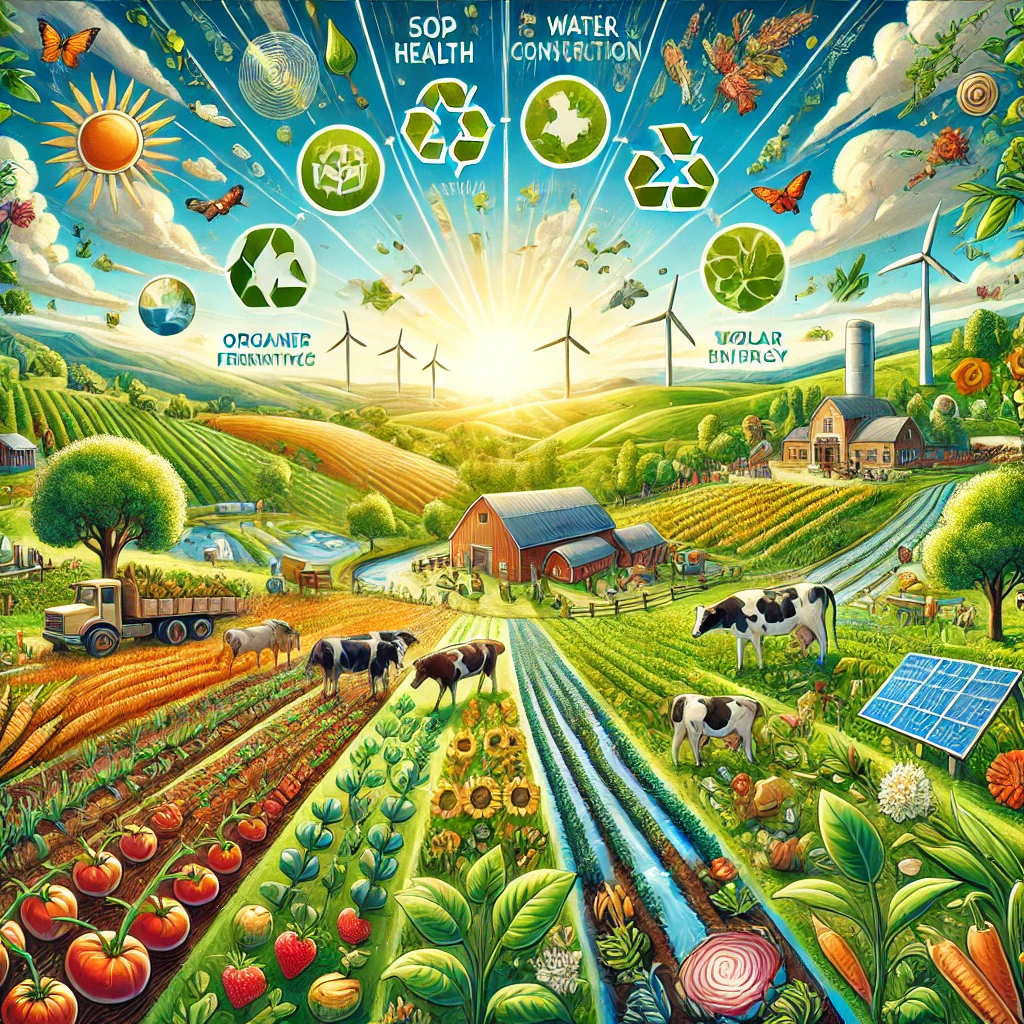What is sustainable agriculture?
Article Source: MDPI Sustainability

Why You Should Care
Sustainable agriculture is crucial for feeding the world while preserving the planet. It's about farming in ways that are healthy for the environment, the economy, and society. By understanding sustainable agriculture, we can make better choices about the food we eat and how it's grown, helping to protect the Earth for future generations.
Answering the Question… What is Sustainable Agriculture?
Sustainable agriculture is a way of farming that focuses on producing food while ensuring that the environment and natural resources are not harmed. This approach uses techniques that reduce the use of water, energy, and chemicals. Studies show that sustainable farms can produce up to 30% more crops in the long term compared to traditional farming methods, making it a powerful tool in the fight against hunger and climate change.
How Was the Study Done?
Researchers reviewed multiple case studies and farming practices around the world. They analyzed data on crop yields, resource use, and environmental impact over several years. The study also involved interviews with farmers to understand their challenges and the benefits of sustainable practices.
What Was Discovered?
- Increased Crop Yields: The study found that sustainable agriculture practices can lead to a significant increase in crop yields, ranging from 20% to 30% over time. This is due to better soil health, reduced dependency on chemical inputs, and the use of crop rotations and organic fertilizers.
- Water Efficiency: Farms practicing sustainable agriculture were shown to use up to 40% less water compared to conventional farming methods. This is achieved through techniques like drip irrigation, rainwater harvesting, and maintaining soil moisture through mulching.
- Energy Savings: Sustainable farming methods can reduce energy consumption by up to 50%. This reduction is primarily due to the decreased use of synthetic fertilizers and pesticides, which require large amounts of energy to produce, and the adoption of renewable energy sources on farms.
- Reduction in Soil Erosion: The study highlighted that sustainable practices reduce soil erosion by as much as 50%. Practices like cover cropping, no-till farming, and maintaining permanent soil cover help in retaining topsoil, which is essential for long-term agricultural productivity.
- Lower Greenhouse Gas Emissions: Sustainable agriculture contributes to a 25% decrease in greenhouse gas emissions. This reduction is attributed to less reliance on synthetic fertilizers, which are major sources of nitrous oxide, a potent greenhouse gas, and the increased use of carbon-sequestering practices such as agroforestry and organic farming.
- Economic Benefits: Farmers adopting sustainable practices often experience a 15% increase in profits. This is due to reduced input costs, such as fertilizers and pesticides, and the higher market value of sustainably grown crops.
- Enhanced Biodiversity: Sustainable farms often see a 30% increase in biodiversity compared to conventional farms. This is because these farms support a wider variety of plants and animals, which contributes to more resilient ecosystems.
- Social and Health Impacts: The study also found that sustainable agriculture supports food security by producing healthier and more nutritious crops. Additionally, it promotes social equity by creating more jobs in rural areas and improving the livelihoods of smallholder farmers.
Why Does It Matter?
Sustainable agriculture matters because it’s key to feeding a growing global population without destroying the planet. By embracing these practices, we can ensure that our food systems are resilient, environmentally friendly, and capable of supporting both people and nature in the long run.
Link to full article: MDPI Sustainability
